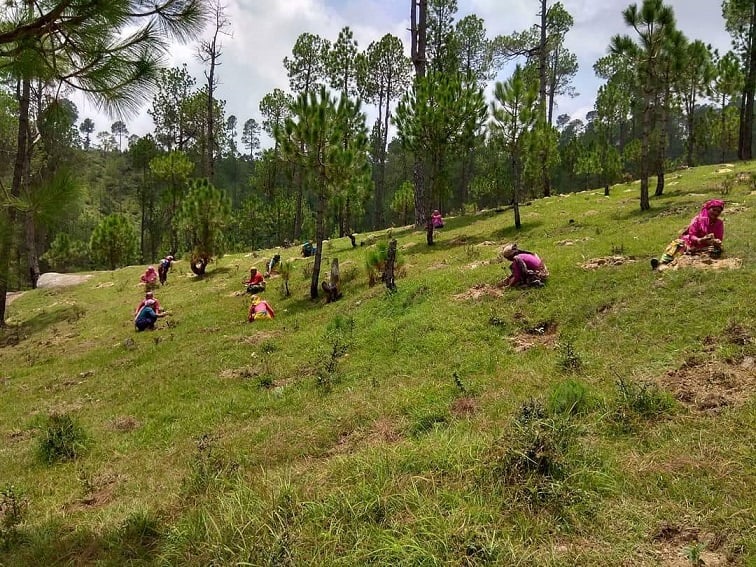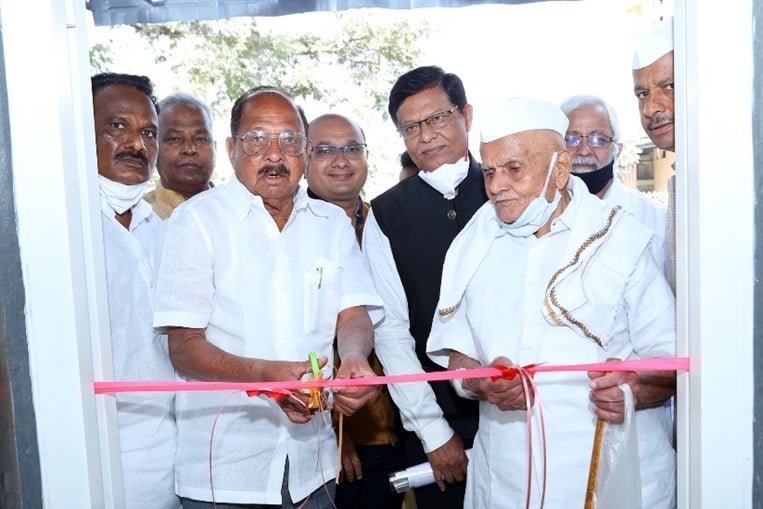
Inauguration of BAIF Kisan Mart at Urulikanchan
BAIF launched the Kisan Mart at the Community Health and Research Centre (CHRC), Urulikanchan on January 26, 2022, thereby setting a precedent in the region.
The Kisan Mart initiative aims at supplying superior quality mineral mixture, fodder seeds, organic liquid fertilizers, vermicompost, BioPROM, solar dried edible products and silk accessories to farmers, milk producers and consumers at an attractive price.
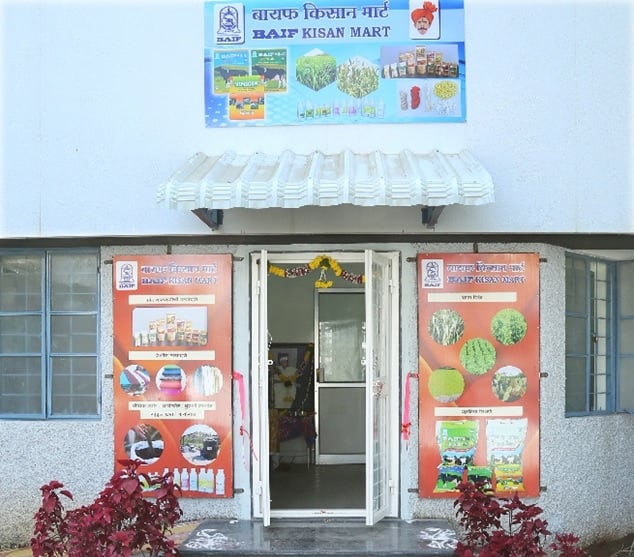
These facilities were inaugurated by the good supporters of BAIF’s Programmes and revered leaders of Urulikanchan – Shri. Dnynoba T. Kanchan and Shri. K.D. Kanchan in the presence of Shri. Bharat Kakade, President, BAIF, Dr. Ashok Pande, Group Vice President, BAIF, Dr. Jayant Khadse, Dr. Manoj Aware, Shri Mansingh Kad, Shri. Santosh Kanchan, Sarpanch, Urulikanchan, Smt. Anita Bagade, Deputy Sarpanch, Urulikanchan, Smt. Hemalatha Badekar, Member, Panchayat Samiti, Smt. Vaishali Mahadik, Member, Panchayat Samiti, Shri. Santosh Kanchan, District Planning Committee Member, Shri. Rajendra Kanchan, Founder, Manibhai Desai Patsanstha, Shri. Rajaram Kanchan, Trustee Treasurer, Mahatma Gandhi Sarvodaya Sangh, Shri. Sopanrao Kanchan-Trustee Secretary, Mahatma Gandhi Sarvodaya Sangh, Shri. Mahadevrao Kanchan Trustee Secretary, Mahatma Gandhi Sarvodaya Sangh and former Member of the Zilla Parishad, Shri. Sambhajibapu Kanchan, Trustee, Mahatma Gandhi Sarvodaya Sangh, other Gram Panchayat members, Trustees of Mahatma Gandhi Sarvodaya Sangh, young entrepreneurs, Sankalp SHG members, officials from CHRC, Central Research Station and Nature Cure Ashram and representatives of the media.






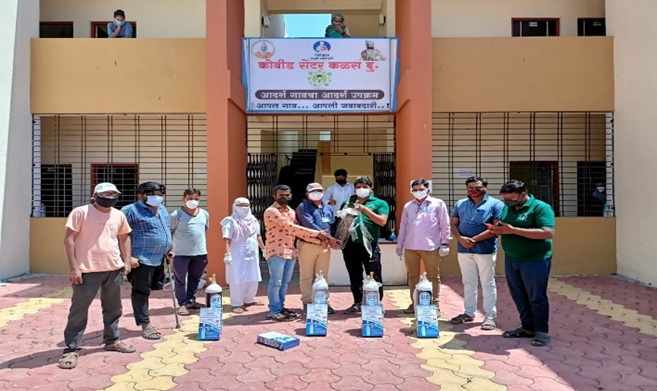
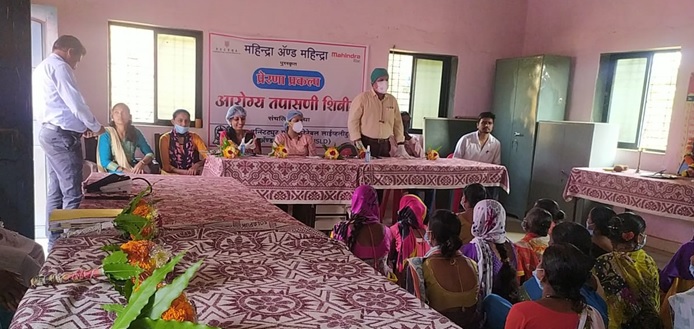
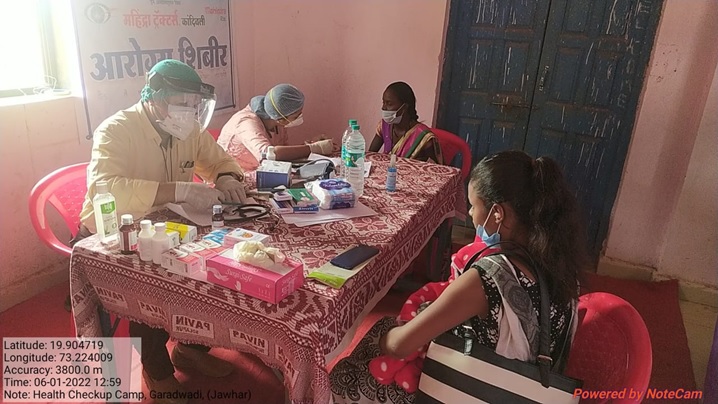

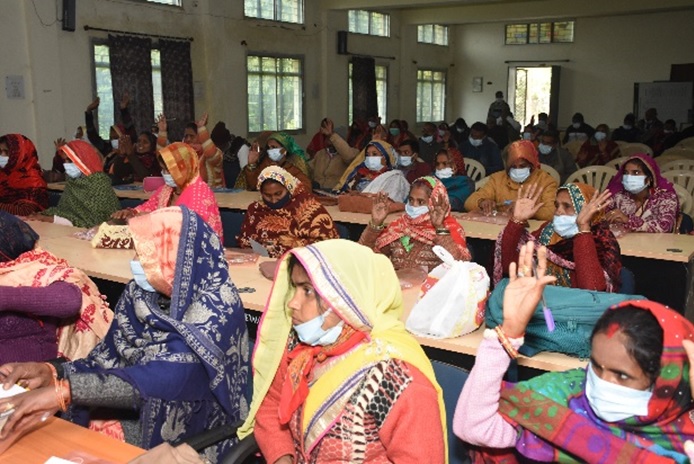


 The village community took an oath to keep their villages and surrounding environment clean in line with Swachh Bharat Mission of the Government of India. The event was facilitated by the BISLD Maharashtra Project team headed by Mr. Shailesh Bhagat, Additional Chief Programme Executive, Nagpur, who shared an overview of the Holistic Programme and the plan to establish a farmer producer organisation in future. Mr. Shelke highlighted the joint effort of BAIF and KVK in promoting short duration turmeric and BSMR 736 pigeon pea varieties in the project area. Others who spoke on the occasion included the CEO, Zilla Parishad and the District Collector, Hingoli who also highlighted various schemes being implemented by the State Government through the Gram Panchayats. The vote of thanks was proposed by Mr. Dalit Manwar, BISLD. The programme was enriched with good wishes conveyed by Mr. Retish Sinha, Head CSR, HDFC Bank Ltd., Mr. Pavan Dongre CSR Manager, HDFC Bank Ltd., Mr. V.B. Dyasa, Regional Director – Western Region, BAIF and Mr. S.M. Wagle, Chief Programme Executive, BISLD, Maharashtra.
The village community took an oath to keep their villages and surrounding environment clean in line with Swachh Bharat Mission of the Government of India. The event was facilitated by the BISLD Maharashtra Project team headed by Mr. Shailesh Bhagat, Additional Chief Programme Executive, Nagpur, who shared an overview of the Holistic Programme and the plan to establish a farmer producer organisation in future. Mr. Shelke highlighted the joint effort of BAIF and KVK in promoting short duration turmeric and BSMR 736 pigeon pea varieties in the project area. Others who spoke on the occasion included the CEO, Zilla Parishad and the District Collector, Hingoli who also highlighted various schemes being implemented by the State Government through the Gram Panchayats. The vote of thanks was proposed by Mr. Dalit Manwar, BISLD. The programme was enriched with good wishes conveyed by Mr. Retish Sinha, Head CSR, HDFC Bank Ltd., Mr. Pavan Dongre CSR Manager, HDFC Bank Ltd., Mr. V.B. Dyasa, Regional Director – Western Region, BAIF and Mr. S.M. Wagle, Chief Programme Executive, BISLD, Maharashtra.